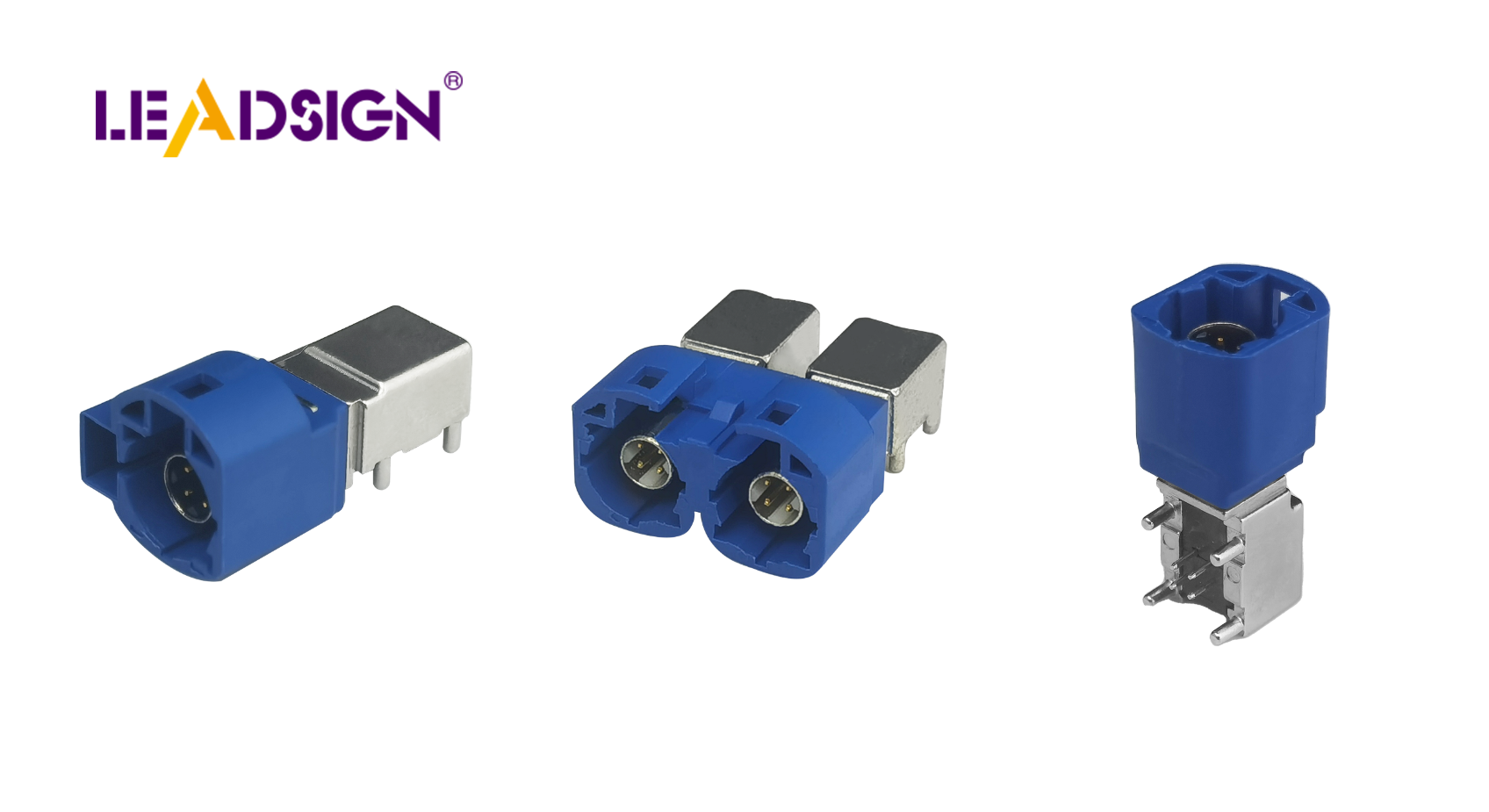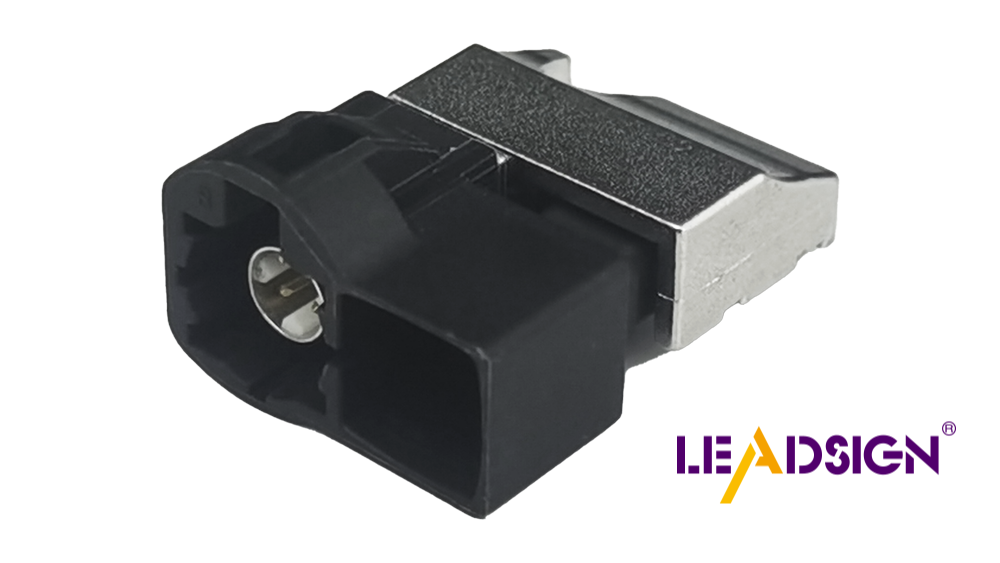Vehicle Connectors: Evaluating Types and Performance

Vehicle connectors are very important in today's cars. They help send electrical signals and power smoothly. This is needed for car electronics to work well. As more people use electric cars, we need better connectors. These connectors must be strong, safe, and work well. Knowing the types of vehicle connectors and how they work is key. This is important for car makers and buyers.
Key Takeaways
Understand the different types of vehicle connectors, such as push-pull, automotive, wire, and new energy connectors, to ensure optimal performance in your car.
Choose connectors based on their compatibility with your vehicle's system and local regulations to guarantee safe and effective operation.
Prioritize durability when selecting connectors; strong materials can withstand harsh conditions, reducing the need for repairs and saving money in the long run.
Evaluate the performance of connectors by checking their ability to handle high voltage and fast data transfer, which is crucial for modern electric and hybrid vehicles.
Consider the cost of connectors carefully; investing in quality connectors may be more expensive upfront but can lead to better performance and longevity.
Utilize specific connector types for their intended applications, such as using heat shrink connectors in wet environments to protect against moisture.
Stay informed about the latest advancements in vehicle connector technology to enhance your car's electrical system and overall performance.
Types of Vehicle Connectors

Knowing the different types of vehicle connectors is important. They help make sure cars have good electrical connections. These connectors send signals and power in cars. Let's look at some main types of connectors used in cars today.
Push-Pull Electrical Connectors
Push-pull electrical connectors are common in cars because they are easy to use. They connect securely. You can find them as push-pull circular connectors, push-pull rectangular connectors, and push-pull fiber optic connectors. Each type has special uses and benefits.
Push-pull circular connectors: These are good for small spaces. They connect with a simple push and pull.
Push-pull rectangular connectors: These are strong and good for tough places.
Push-pull fiber optic connectors: These are great for fast data, with little signal loss.
Push-pull power connectors: These handle lots of power, perfect for big jobs.
Automotive Electrical Connectors
Automotive electrical connectors link parts in a car. They help things like radios and sensors work well. There are different types of car electrical connectors, each made for certain jobs.
Traditional car connectors: Used for many years, they meet basic car needs.
OEM car twin connectors: These make strong wire links, important for new engines.
Wire Connectors
Wire connectors are key in cars. They keep wires safe and connected. There are many types of wire connectors, each with its own perks.
Heat shrink wire connectors: These protect from weather. They are good where water is a problem.
Automotive wire harness connectors: These join parts like radios and sensors, making sure they work well.
By knowing these car wire connector types, you can pick the right ones for your car. Each type has special features and helps with different car needs.
New Energy Vehicle Connector
In electric and hybrid cars, the new energy vehicle connector is very important. These connectors make sure your car's electrical parts work well and safely. They are made to handle the special needs of new energy cars, which often need more voltage and power than regular cars.
Key Features of New Energy Vehicle Connectors:
High Voltage Handling: These connectors manage high voltage in electric cars. This makes sure power moves safely and well.
Durability: Cars face tough conditions, so these connectors are strong. They can handle heat and shaking, lasting a long time.
Environmental Resistance: These connectors have strong seals to keep out water, dust, and dirt. This keeps the car's electrical parts safe.
Compatibility: These connectors fit with different charging types and car models. This makes them easy to use in many cars.
Applications:
Battery Connections: They link the battery to the car's electrical parts, spreading power well.
Charging Systems: These connectors are key for charging, moving energy safely from the station to the car.
Motor Connections: They connect the electric motor to the car's power, helping it run smoothly.
Knowing about the new energy vehicle connector helps you see how car technology is getting better. These connectors make electric cars work better and stay safe.
Performance Check
Checking how vehicle connectors work is very important. It makes sure cars have safe electrical links. You need to know the details, good and bad points, and uses to choose well.
Technical Details
When looking at vehicle connectors, check their details. These show if a connector can handle fast data and high power. Find connectors that send data quickly. This helps car parts talk well. High-power connectors are key for electric cars. They give safe power links. Look at the connector's material, size, and if it fits your car's system.
Good and Bad Points
Knowing what wire connectors do well helps you pick the right ones. Wire connectors are easy to put in and make strong links. They keep out water and dust, keeping connections safe. But some connectors might bend less or cost more. Think about the good and bad to find the best connectors for your car.
Uses
Vehicle connectors are used in many car parts. They help send data fast, making cool features work. High-power connectors are important in electric cars. They spread power well. You see these connectors in engines, lights, and safety parts. Knowing their uses shows why picking the right connectors matters for your car.
Buying Guide
Picking the right car connector is important. It affects how your car works and stays safe. This guide helps you know what to look for when buying car connectors.
Compatibility
Make sure the connector fits your car. Different places use different connectors. In the U.S., Type 1 is common. In Europe, Type 2 CCS is used. Check that the connector matches your car's needs and local rules. This makes sure it works well. Always read the maker's instructions to see if it fits your car.
Durability
Connectors need to be strong. They face tough weather, water, and shaking. Good connectors last long and work well. Look for ones made with strong materials. Strong connectors mean fewer repairs and save money over time.
Cost Considerations
Think about the cost when buying connectors. Cheap ones might not last. Good connectors cost more but work better and longer. Electric car connectors can be pricey but are worth it. Think about all costs, like putting them in and replacing them. A good guide helps you pick the best connectors for your money.
By knowing these things, you can choose the right connector for your car. This helps your car work better and stay safe.
Knowing the different types of vehicle connectors is important. They help car parts talk to each other. When picking a connector, think about how strong it is. Check if it fits your car and can handle tough weather. Good connectors make your car work better and safer. They last a long time and keep your car running well.
FAQ
What are the main types of vehicle connectors?
Vehicle connectors have different types for special jobs. The main ones are push-pull, automotive, wire, and new energy connectors. Each type has special features and uses. They help parts of a car connect well and work right.
Why are push-pull electrical connectors popular in vehicles?
Push-pull connectors are liked because they are simple to use. They connect safely. They come as round, square, and fiber optic types. Each is good for certain uses. They make quick and safe links, perfect for cars.
How do automotive electrical connectors differ from other connectors?
Automotive connectors link car parts like radios and sensors. They are made to handle tough car conditions. They work well in cars. Traditional and OEM twin connectors are common in cars.
What makes wire connectors essential in vehicles?
Wire connectors keep wires safe and linked in cars. They stop water and dust from hurting wires. Types like heat shrink and harness connectors help car systems work safely and well.
What are the key features of new energy vehicle connectors?
New energy connectors handle high power in electric cars. They manage high voltage, last long, resist weather, and fit many chargers. These features help electric cars get power safely and well.
How do you evaluate the performance of vehicle connectors?
To check how connectors work, look at their details, good and bad points, and uses. Find ones that handle fast data and strong power. Make sure they are made from strong stuff. This helps pick the right connectors for your car.
What should you consider when buying vehicle connectors?
When buying connectors, think about fit, strength, and price. Make sure they fit your car and can handle tough weather. Good connectors cost more but last longer. They save money by needing fewer fixes.
Why is compatibility important for vehicle connectors?
Compatibility means connectors fit your car's system and local rules. Different places use different connectors. Pick ones that match your car's needs and follow rules. This keeps them working right and safe.
How does durability affect the performance of vehicle connectors?
Durability is key for connectors as they face tough things like heat and shaking. Strong connectors last longer and work well. They need fewer repairs. Choose ones made from strong materials for long use.
What are some common questions about automotive electrical connectors?
People ask about connector types, uses, and picking the right ones. They want to know differences between connectors, their uses in cars, and what to think about when choosing for their cars.
See Also
Improving Automotive Data Flow With Innovative Connectors And Cables
Boosting Data Transfer: Significance of Fast Automotive Connectors
Understanding The Advantages Of Fakra Connectors In Vehicles
Increasing Performance Using HFM Connectors In Automotive Systems
Transforming Vehicle Connectivity: Benefits Of HFM Connectors

